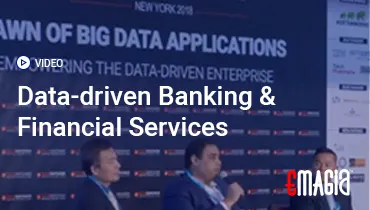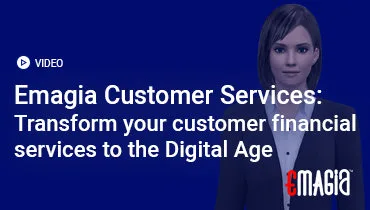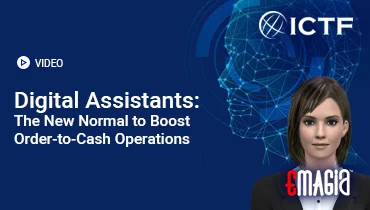In today’s fast-paced business environment, selecting the right accounting software is crucial for efficient financial management. The ideal accounting software should not only handle basic bookkeeping but also offer advanced features that cater to the unique needs of your business. This comprehensive guide delves into the essential features that modern accounting software must possess to streamline operations, ensure compliance, and support growth.
1. User-Friendly Interface
A user-friendly interface is paramount for ensuring that your team can effectively utilize the accounting software. An intuitive design minimizes the learning curve, reduces errors, and enhances productivity. Key aspects include:
- Customizable Dashboards: Allow users to tailor their workspace to display relevant financial metrics and reports.
- Easy Navigation: Simplifies access to various modules such as invoicing, reporting, and expense tracking.
- Responsive Design: Ensures compatibility across devices, facilitating access on desktops, tablets, and smartphones.
2. Core Accounting Functions
At the heart of any accounting software are its core functionalities, which should encompass:
- General Ledger Management: Tracks all financial transactions and provides a comprehensive view of the company’s financial health.
- Accounts Payable and Receivable: Manages incoming and outgoing payments, ensuring timely settlements.
- Bank Reconciliation: Automates the matching of bank statements with recorded transactions to identify discrepancies.
3. Automated Invoicing and Billing
Automation in invoicing and billing accelerates the payment process and reduces manual errors. Essential features include:
- Recurring Invoices: Automatically generates invoices for regular clients or subscriptions.
- Payment Reminders: Sends automated notifications to clients for upcoming or overdue payments.
- Integration with Payment Gateways: Facilitates seamless transactions through platforms like PayPal or Stripe.
4. Comprehensive Reporting and Analytics
Robust reporting tools enable businesses to make informed decisions. Look for software that offers:
- Customizable Reports: Allows the creation of tailored financial statements, balance sheets, and cash flow analyses.
- Real-Time Data: Provides up-to-date financial information for timely decision-making.
- Visual Analytics: Utilizes graphs and charts to represent financial data clearly.
5. Integration with Other Business Tools
Seamless integration with other software enhances efficiency and data accuracy. Key integrations include:
- Customer Relationship Management (CRM): Syncs customer data for better service and targeted marketing.
- Enterprise Resource Planning (ERP): Aligns financial data with other business operations like inventory and supply chain management.
- Payroll Systems: Ensures accurate salary calculations and tax deductions.
6. Automation Features
Automation reduces manual workload and minimizes errors. Essential automation features encompass:
- Bank Feeds: Automatically imports bank transactions into the accounting system.
- Expense Categorization: Uses AI to classify expenses accurately.
- Tax Calculations: Computes taxes based on current regulations, reducing the risk of non-compliance.
7. Scalability
As your business grows, your accounting software should adapt accordingly. Scalability features include:
- User Management: Allows the addition of new users with role-based access controls.
- Modular Architecture: Enables the integration of additional functionalities as needed.
- Cloud-Based Solutions: Offers flexibility and remote access, supporting business expansion.
8. Compliance and Tax Management
Ensuring compliance with tax laws is critical. Accounting software should provide:
- Automated Tax Reporting: Generates necessary tax documents and reports.
- Regulatory Updates: Keeps the system updated with the latest tax laws and regulations.
- Audit Trails: Maintains records of all financial transactions for auditing purposes.
9. Security and Data Protection
Protecting sensitive financial data is non-negotiable. Essential security features include:
- Data Encryption: Secures data during transmission and storage.
- Two-Factor Authentication: Adds an extra layer of security for user access.
- Regular Backups: Ensures data recovery in case of system failures.
10. Mobile Accessibility
With the increasing need for mobility, accounting software should offer:
- Mobile Applications: Provides access to financial data on-the-go.
- Responsive Design: Ensures usability across various devices.
- Real-Time Synchronization: Keeps data consistent across platforms.
11. Customer Support and Training
Reliable customer support ensures that issues are resolved promptly. Look for:
- Multi-Channel Support: Availability through phone, email, and live chat.
- Comprehensive Documentation: Access to user manuals, FAQs, and tutorials.
- Training Programs: Offers webinars and workshops for user education.
12. Inventory Management
For businesses dealing with physical products, inventory management is crucial. Features to consider:
- Real-Time Tracking: Monitors stock levels and alerts for reordering.
- Integration with Sales: Updates inventory based on sales transactions.
- Reporting Tools: Provides insights into inventory turnover and stock valuation.
13. Payroll Management
Efficient payroll management ensures employee satisfaction and compliance. Key features include:
- Salary Calculations: Automates gross and net pay computations.
- Tax Deductions: Calculates and withholds appropriate taxes.
- Payslip Generation: Provides detailed salary statements to employees.
14. Document Management
Organizing financial documents is essential for record-keeping and audits. Look for:
- Digital Storage: Saves documents electronically for easy retrieval.
- Version Control: Tracks changes and maintains document history.
- Access Controls: Restricts document access based on user roles.
15. Audit Trail
An audit trail enhances transparency and accountability. Essential aspects include:
- Transaction Logs: Records all financial activities within the system.
- User Activity Monitoring: Tracks user actions for security purposes.
- Change History: Maintains a history of edits and deletions.
16. Budgeting and Forecasting
Planning for the future is vital for business success. Features to consider:
- Budget Creation: Allows setting financial goals and limits.
- Forecasting Tools: Predicts future financial trends based on historical data.
- Variance Analysis: Compares actual performance against budgets.
17. Multi-Currency Support
For businesses operating globally, multi-currency support is essential. Features include:
- Currency Conversion: Automatically updates exchange rates.
- International Transactions: Handles invoices and payments in various currencies.
- Compliance with Global Standards: Ensures adherence to international financial regulations.
18. Access Control
Managing user access enhances security and operational efficiency. Key features:
- Role-Based Permissions: Assigns access rights based on job responsibilities.
- User Activity Logs: Monitors actions taken by each user.
- Authentication Protocols: Implements secure login procedures.
19. Asset Tracking and Management
Monitoring company assets ensures optimal utilization and compliance. Features to consider:
- Asset Registers: Maintains a detailed list of company assets.
- Depreciation Calculations: Automates the computation of asset depreciation.
- Maintenance Scheduling: Plans regular maintenance to prolong asset life.
20. Real-Time Financial Reporting
Access to real-time data enables swift decision-making. Essential features include:
- Live Dashboards: Displays current financial metrics.
- Automated Updates: Reflects changes instantly across reports.
- Custom Alerts: Notifies users of significant financial events.
How Emagia Enhances Accounting Software Capabilities
Emagia offers advanced solutions that complement traditional accounting software, providing businesses with enhanced financial management tools. Key offerings include:
- AI-Powered Automation: Streamlines processes like invoicing, collections, and cash application.
- Predictive Analytics: Forecasts financial trends to aid strategic planning.
- Integrated Platforms: Combines various financial operations into a unified system for efficiency.
By integrating Emagia’s solutions, businesses can achieve greater accuracy, efficiency, and insight into their financial operations.
Frequently Asked Questions
What features should I look for in accounting software for my business?
When selecting accounting software, prioritize features such as user-friendly interfaces, core accounting functions, automated invoicing, comprehensive reporting, integration capabilities, scalability, compliance tools, robust security, mobile accessibility, and reliable customer support.
How does integration with other business tools benefit accounting software?
Integration allows seamless data flow between accounting software and other systems like CRM, ERP, and payroll, reducing manual data entry, minimizing errors, and providing a holistic view of business operations.
Why is real-time financial reporting important?
Real-time reporting offers up-to-date financial insights, enabling prompt decision-making, early detection of issues, and better financial planning.
How does automation improve accounting processes?
Automation reduces manual tasks, minimizes errors, accelerates processes like invoicing and reconciliations, and ensures consistency in financial operations.
What security features are essential in accounting software?
Essential security features include data encryption, two-factor authentication, regular backups, access controls, and audit trails to protect sensitive financial information.
Can accounting software handle multi-currency transactions?
Yes, many accounting software solutions offer multi-currency support, automatically updating exchange rates and handling international transactions in compliance with global standards.
How does Emagia enhance traditional accounting software?
Emagia provides AI-driven automation, predictive analytics, and integrated financial platforms that enhance the capabilities of traditional accounting software, leading to improved efficiency and financial insight.
By understanding and prioritizing these essential features, businesses can select accounting software that not only meets their current needs but also supports future growth and adaptation in an ever-evolving financial landscape.



